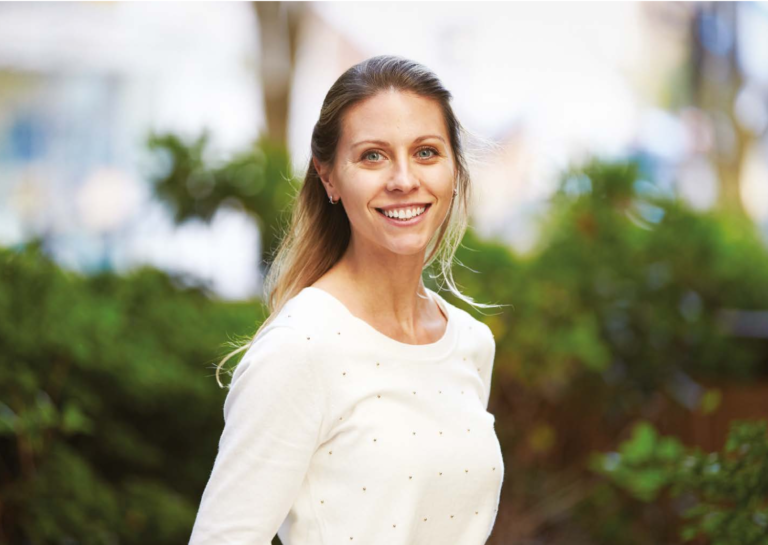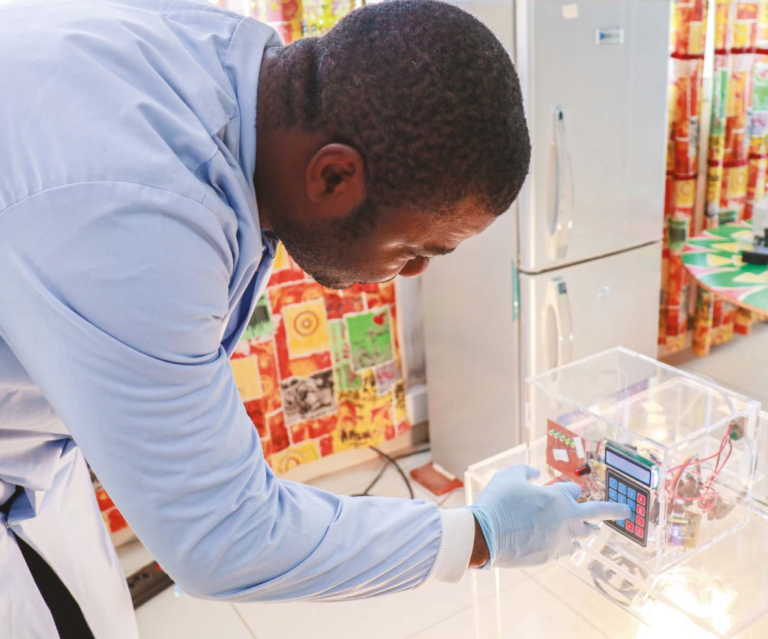Alfredo Giron-Nava didn’t spot many peers at the inaugural meeting of the United Nations Decade of Ocean Sciences for Sustainable Development.
The postdoctoral researcher was one of only six junior scientists at the event, held in Copenhagen in May 2019. Four of them began discussions on how to boost the representation of junior scientists in the initiative, which sets global research priorities for ocean sciences.
After they persuaded organizers to give them a concluding talk slot, Giron-Nava, now a fisheries researcher at Stanford University in California, told the meeting, “It’s important to have early-career researchers who, at the end of the decade, will feel ownership and leadership of the objectives we are deciding here.”
The room erupted into applause. Anecdotally, steps by junior researchers to claim seats at science’s decision-making tables are becoming more common. Doctoral students, postdocs and people who have had their PhD for less than ten years are joining advisory boards, oversight councils and conference-organizing committees. Others have started their own advocacy and research initiatives by founding non-profit organizations and companies, bringing fresh perspectives and up-to-date expertise to boardrooms and advisory committees. And they gain organizational, management and leadership experience.
Junior researchers who are interested in leadership roles should seize opportunities sooner rather than later, says Juan Pablo Alperin, who studies scholarly communications at Simon Fraser University in Vancouver, Canada. Alperin served as the first early-career researcher on the advisory board of the Scholarly Publishing and Academic Resources Coalition (SPARC), a global open-access advocacy organization. “Stay in touch with shaping the profession you are going to be living in — leadership positions do that in a direct way,” he advises.
Opening Doors
Open science and open-access-publishing movements have created early-career lead- ership opportunities, specialists say. Mark Patterson, former executive director of eLife, which runs the open-access journal eLife in Cambridge, UK, says he detects a strong appe- tite among junior researchers for systemic change in how science is shared and published.
Members of a group eLife set up in 2014 to represent the needs and aspirations of early-stage researchers convinced Patter- son, who is now retired, and his colleagues to involve more junior scientists in the running of the journal. In response, the non-profit organization added a dedicated early-career-researcher seat to its board of directors, and created a pool of junior peer reviewers for articles. The board position is currently held by cell biologist Prachee Avas- thi at Geisel School of Medicine at Dartmouth College in Hanover, New Hampshire. Other publishers have added early-career advisers either on their boards (PLOS) or in their advi- sory groups (Journal of Cell Biology). Nature and the Nature-branded journals, which are published by Springer Nature, do not have a formal advisory board or panel. The company is recruiting junior researchers for a soon- to-be launched Springer Nature US Research Advisory Council.
In March, eLife announced a partnership with PREreview, a preprint review platform, to engage more early-career researchers and those from under-represented groups in peer review.
Brianne Kent, a neuroscientist at Simon Fraser University in Burnaby, Canada, says more junior researchers are in positions of influence because so many are active in movements around open science, open access and reproducibility. Those include non-profit advocacy groups such as ASAPBio in San Francisco, California, and the Future of Research in Boston, Massachusetts. “Early-career researchers are really driving these initiatives to change scientific culture,” says Kent, who is the first, and currently the only, junior scientist to sit on the Canadian Institutes of Health Research’s 16-member govern- ing council.
The council oversees how federal funding for health research in Canada is spent. Kent, who joined in 2019 when she was a postdoc, says her position is not a dedicated junior seat, but grew out of a general call for applications to diversify the council. She was one of four members to draw up the council’s strategic plan for 2021–31, directing which health priori- ties the council will fund in the coming decade. Both Kent and Avasthi say that senior board colleagues have welcomed them and encouraged them to participate fully. “I love being on the eLife board so much because everyone on it is so dissatisfied with the status quo in publishing,” says Avasthi. She’s been a vocal proponent of new policies for peer reviewing preprints. Her seat is 100% an equal seat, she says, with her feedback sought and taken seriously.
Nick Shockey, SPARC’s director of programmes and engagement in Washington DC, says that junior researchers are the very audience that journals, professional societies and conferences need to reach most. “Not to have the diversity of their perspective on boards is a real handicap,” he adds.
The inclusion of early-career researchers in advisory roles, even in small numbers to start with, will, by the very nature of their demographic, automatically bring diversity to boards and governing bodies. “Early-career researchers today look very different from people who reached their research positions 30 years ago,” says Alperin. An early-career adviser brings with them not only a beginner’s viewpoint, but also fresh perspectives. They might have different cultural, ethnic or socio-economic backgrounds — they could be first-generation immigrants, Indigenous researchers or people from sexual and gender minorities, for example.
Senior researchers say that their junior colleagues often have the most up-to-date expertise on technology and methodologies in their research fields. They still get their hands dirty at the bench or in the field, and dive deeply into the literature daily.
Many early-career leaders also boast the digital skills that drive today’s globalized research. They tend to be digital natives, often know basic software coding and are comfort- able working with big data on cloud-based platforms. Many also deftly connect with other researchers and communities through social media.
Ecologist Monica Granados, policy adviser at Environment and Climate Change Canada, the national agency in Gatineau that coordinates environmental policy, compares graduate students and postdocs to those who work hands-on in an assembly line. For example, she says, they have been early adopters of digital lab notebooks that share data immediately on the Internet. “They see where mistakes and inefficiencies are and the ways that the science could be improved,” she says.

Brianne Kent is the first junior scientist to sit on one Canadian institute’s governing council.
Value added
Early-career researchers not only bring new skills and diverse perspectives, they also pick up valuable skills managing teams and pro- jects, organizing and planning events, and honing their verbal and written communication. Sometimes, it’s possible to publish advisory work, as Giron-Nava did with his commentary on the early-career initiatives of the UN decade project (A. Giron-Nava Mar. Technol. Soc. J. 53, 7–11; 2019). These publications, often cited or shared widely on social media, showcase junior researchers’ service and can raise their profiles.
Granados used her knowledge about the latest open-science technologies and initiatives when working on a report that summarizes how many peer-reviewed publications and how much data the government of Canada has made openly accessible (SBDAs Open Science Metrics Working Group. Preprint at Zenodo https://doi.org/f5jr; 2019).
Many early-career leaders are motivated to give back to their communities or research fields, and, for those living abroad, to improve the opportunities for their own fledgling careers at home. After studying in France and the United States, molecular biologist Khadidiatou Sall had always planned to return to Senegal to put her technical skills to use. “The African continent missed the second industrial revolution, and it did not go well for us,” says Sall. “We cannot miss the digital revolution.”
In 2017, she founded a non-profit organization called Science Education Exchange for Sustainable Development (SeeSD), as well as an innovation lab start-up in Dakar named Ubbil. “In the Senegalese context, you realize that you can’t put things off, because that has a consequence for everyone, including you,” she says.
Ubbil uses open-source software to build low-cost digital tools for Senegalese businesses to manage their inventories, accounting and customer relations. The lab’s biotechnology component trains scientists in genomics, gene sequencing and bioinformatics. It also manufactures face shields for healthcare workers at 60 hospitals in Senegal for use during the COVID-19 pandemic.
SeeSD promotes science, technology, engineering, mathematics (STEM) and arts education in schoolchildren in Senegal, using culturally relevant methods, in local languages and by including examples of Indigenous and traditional knowledge.
Sall relied on a wide community of family, friends, school directors and others working in the education sector to get SeeSD up and running while she was still a doctoral student in the United States.
Thomas Mboa was also a doctoral student, in science communication, when he founded Mboalab in Yaoundé, Cameroon. The innovation lab provides space for Internet-based study, a wet biology lab, and a ‘do-it-yourself ’ science environment where people can “find local solutions to fix local problems”, he says. (The lab is named after the word mboa, which means ‘new’, ‘unique’ or ‘village’ in local languages.)
For example, the Kossamtor project at Mboalab built an incubator to help local people safely ferment a type of yogurt called kossam. Mboa, now a postdoc at the Open African Innovation Research Partnership at the University of Ottawa in Canada, also leads a project producing dried diagnostic and research enzymes. These do not need to be stored in refrigerators, which can be difficult to access in parts of Africa. “Decision-makers here are not always at the same level of understanding about how technology is evolving,” says Mboa, who splits his time between Canada and Cameroon. “It is better for young Africans to take action.”
Both Sall and Mboa felt that conventional academic careers would limit their freedom to pursue their entrepreneurial ideas. However, that means they are both doing multiple jobs. “Sometimes I feel like a principal investigator because I’m doing a lot of training and answering questions,” adds Sall, who also teaches genomics and bioinformatics at University Cheikh Anta Diop in Dakar.

Thomas Mboa inspects an incubator he built with his team.
Side benefits
The professional development Sall gains from running these initiatives are at least equal to what she would achieve as an assistant professor, she says. Others say that the professional benefits from their advisory, advocacy, and leadership roles far outweigh the time taken away from their research. The biggest boon might be the researchers’ greatly expanded professional networks and amplified profile.
“Professionally, having access to this network — and the future prospects of jobs it represents — is amazing,” says Giron-Nava, who is also at the World Economic Forum’s Centre for the Fourth Industrial Revolution in San Francisco, California. Through the UN decade initiative, he has direct access to global scientific and policy directors, as well as to top scientists at leading research centers around the world.
These connections lead to speaking engagements, collaborations and research projects, as well as other advisory roles.
As a postdoc, Kelly Ramirez co-founded the advocacy organization 500 Women Scientists to promote the voices and stories of women in STEM. She says her advocacy and policy work helped her to “sell herself” during the two years of interviews before she landed a job as an assistant professor at the University of Texas at El Paso.
“For job talks, I already had the practice of telling things in a succinct, storytelling way,” she says. And her work running an organization meant she understood budgets, fundraising and managing a diverse team. That showed her future faculty colleagues that she had the skills to be a successful group leader.
Early-career leaders who participate in peer review and on tenure-review committees get to pull the curtain back on evaluation processes that they will also go through. “A lot of the mystery is gone when you are using that experience in your own process,” says Avasthi. From her work at eLife, she says, she has learned to take reviews of her own work less personally and to embrace transparency in evaluations.
These junior scientists are also picking up soft skills rarely gained in the lab or field. After 18 months of co-leading the Early Career Ocean Professionals programme for the UN decade project, Giron-Nava has polished his diplomacy skills, learning how to negotiate and argue scientific points in a way that respects cultural differences and international viewpoints. “We have faced many situations in which our usual Western approach to collaboration does not resonate with colleagues in eastern Africa or southeast Asia. We have had to navigate this challenge to develop a truly inclusive programme,” he says.
On SPARC’s board, Alperin got the insider’s view of national political lobbying when the Fair Access to Science and Technology Research law — to make taxpayer-funded research publications available to the public after 12 months — was being stewarded through the US Congress. “It was fascinating to hear the strategizing of meetings with lawmakers and to see how things move into policy and law,” he says.
And Granados and Sall have turned their networking and leadership skills into the ultimate benefit — a full-time job doing something they are passionate about.
“What I can do through my own research pales in comparison to bringing the open-science tools and ethos to other researchers,” says Julia Stewart Lowndes, who runs Openscapes, a programme she developed at the National Center for Ecological Analysis and Synthesis in Santa Barbara, California, to increase the efficiency of scientific collaboration.
Through this programme, she has advised dozens of US academic and government research teams on how to engage in open-data science. She says that more such ‘horizontal leadership’ positions — which support, train or aid research colleagues at various career stages and levels — should be created and funded for early-career researchers.
Participation on boards or in leading initiatives can come at a cost: time taken from an individual’s projects, publications, or grants. But many early-career leaders have developed strategies for time management and work-life balance to mitigate the downsides of their intense involvement.
Time investment
Some positions require significant amounts of time for in-person or virtual meetings, or frequent phone or video-conference calls. Hard deadlines for conferences or reports mean that research papers can slide to the back burner.
Giron-Nava sets firm work boundaries — by dedicating at least 80% of his work time to fisheries research and other fellowship work. Pre-pandemic, he scheduled travel so that he had at least 7–10 consecutive days at home in California, and restricted his UN reading and work to long international flights when possible. During the pandemic, he blocks off at least one day per week to be free of video-conference meetings.
Mboa says that overstretched junior scientists need to say ‘no’ sometimes. He has learned to turn down invitations to speak on panels — especially when he feels that he is being asked because organizers want to simply tick a box to say they have “someone coming from Black Africa”.
Sall, who teaches, leads a non-profit organization and runs a company, sets weekly and monthly goals for each initiative. But despite delegating tasks to others, she still works six days per week, often late into the night, which can be mentally exhausting. She takes Sundays off and relaxes by listening to podcasts and audiobooks, watching television and films, and spending time with her family.
Ramirez wonders how her work on 500 Women Scientists will be valued in her tenure review. Many early-career advisers and advocates face pressure from their research supervisors and peers to spend more time on their own research. “Science continues to value science first,” she says.
Navigating that criticism can be tricky, but many early-career researchers say the advantages of their leadership work are worth it. Their passion projects keep them energized and pushing forward in their research and other roles.
As a group, Shockey says, junior scientists are less entrenched in specific scientific methodologies or processes, have fewer work commitments beyond their own research, and bring high levels of energy and creativity to endeavors. “That energy is absolutely a real thing,” he says.
But, he adds, that energy can easily be dismissed by organizations as not being as valuable as decades of experience. To his mind, that’s a mistake. “Excitement coupled with ideas”, he says, “is what drives things forward.”
Author
Kendall Powell is a freelance writer in Lafayette, Colorado.
